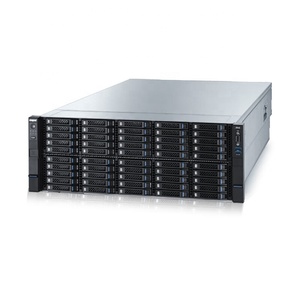Popular in your industry


















Related Searches:



















 Ready to Ship
Ready to Ship
 Ready to Ship
Ready to Ship












Top categories
About arm server processor
ARM server processors are a type of central processing unit (CPU) designed to power servers. ARM (Advanced RISC Machine) processors are known for their efficiency and scalability, making them suitable for various computing devices, including servers. ARM-based servers differ from traditional x86 servers, as they use ARM architecture, which is popular in mobile and embedded devices due to its power efficiency. The Ampere ARM CPU is a notable example of ARM server processors.
ARM server processors vs. traditional processors
ARM server processors have several advantages over traditional x86 processors. The primary distinction lies in the architecture; ARM processors use a Reduced Instruction Set Computing (RISC) architecture, while x86 processors use Complex Instruction Set Computing (CISC) architecture. RISC architectures have simpler instructions that can be executed quickly, enabling better power efficiency. In contrast, CISC architectures have more complex instructions, which can lead to higher power consumption. The ARM server CPU is designed to be more power-efficient, making it suitable for applications requiring lower power consumption. ARM processors are also known for their scalability, allowing for the creation of high-core count processors with energy-efficient cores. This scalability is particularly advantageous for workloads that can be parallelized across multiple cores.
Applications of ARM server processors
ARM server processors have gained popularity in various applications and industries. In the data center, these processors are used in hyperscale and cloud environments, where power efficiency and scalability are critical. The efficiency of ARM-based servers makes them suitable for workloads such as web hosting, content delivery networks, and big data analytics. Additionally, in edge computing, where computing resources are closer to the data source, ARM processors can be deployed in ARM-based servers to power edge data centers and enable real-time processing of data. The high-performance computing (HPC) sector also benefits from ARM processors, as they can be used in clustered environments for scientific research, weather modeling, and simulations. Furthermore, the telecommunications industry leverages ARM processors in network functions, such as virtualized network appliances and software-defined networking.
Advantages of ARM server processors
ARM server processors offer several advantages over traditional x86 processors, making them a compelling choice for specific applications. One of the primary advantages is power efficiency. ARM processors are designed to prioritize energy efficiency, making them suitable for environments where power consumption is a concern. This efficiency can lead to lower operating costs and reduced environmental impact. Scalability is another key advantage of ARM processors. These processors can be configured with a high core count, enabling parallel processing and improved performance for workloads that benefit from parallelism. The flexibility of ARM architecture allows for customization and optimization to meet specific application requirements.

























